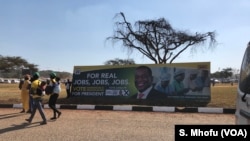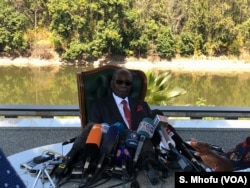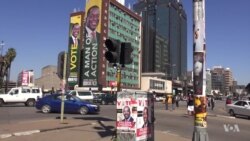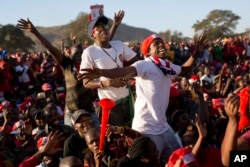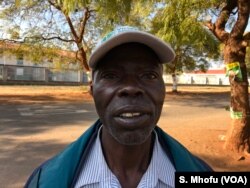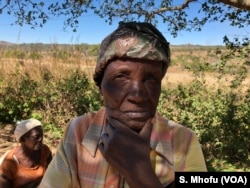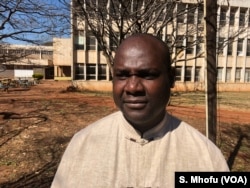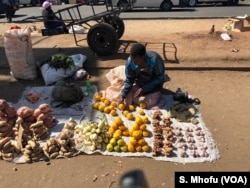Zimbabwe holds its first general election without its founding leader Robert Mugabe on the ballot Monday.
Mugabe took the oath of office in 1980 as Zimbabwe’s first leader after independence. He was to be the country’s head for the next 37 years — until November last year when military pressure led him to resign.
Until his sudden address to reporters Sunday Mugabe had largely been quiet, except in March when he said his successor, Emmerson Mnangagwa, had taken power through a coup. On Sunday he said he would not vote for Mnangagwa and ZANU- PF, a party he formed in the 1960s.
WATCH: Anita Powell's video report
Jealousy Mawarire of the National Patriotic Front which is largely associated with the former first family, says the 94-year-old former leader still has a role to play.
“He is a very important factor [in this election] in the sense that they are millions of people who were within ZANU-PF who respected him and believed in his pro-people stunts,” says Mawarire.
While during the election campaign Mnangagwa has avoided mentioning Mugabe, his ZANU-PF party has said the main opposition leader, Nelson Chamisa of the Movement for Democratic Change Alliance, is the one closest to the former president.
In his final rally Saturday, Chamisa said he talks to Mugabe but there is no reason for the ruling ZANU-PF to disown “its old man.”
“We understand that Mugabe was wrong in some of his actions, but he was not alone, he was with Mnangagwa. But that is not my focus, the focus is not the past, the focus is the future," he said. "Past mistakes we correct, past omissions we remedy, past omissions we relieve but when we move forward we ask those who ruled first, where they went wrong that’s how we solve things as we are moving forward.”
ZANU-PF supporters are divided about Mugabe.
“When I think of Mugabe’s time we had become slaves, housing stands were taken away from us. This was painful and is still very painful to us, we feel that this is not good,” says Everson Chimungungu from Epworth, just outside Harare.
“I don’t want to hear about Mugabe because I’m now 48 years old and I feel that he is responsible for who I have become because I have never worked in my life,” said Zvichemo Homani from Mutoko, about 200 km east of Harare.
And 73-year-old Helen Katandika from Arcturus mining-farming area just outside Harare who says she will vote for Mnangagwa.
"During the Mugabe era we were living quite well here because we have our land," she said. "We are fairly outsiders when it comes to whether Mugabe rule was good or bad, it was amongst his colleagues in Harare who saw that he was old and needed him to retire."
While the ZANU-PF party might try to disown Mugabe, Alexander Rusero, a senior lecturer of journalism and international politics at Harare Polytechnic College says this election is crucial for Mnangagwa.
“ZANU-PF is trying to legitimize itself because by and large what happened after the ouster of Robert Mugabe you have a government that has questionable legitimacy, political legitimacy this government desperately needs," he said. "Mnangagwa is in desperate need of endorsement to say that at least we are governing through the concern of the people, through the consent of the electorate, so this election is equally important to them should they win it because it will clear the dark episode of what happened in November.”
Results of Monday's first post-Mugabe general election are expected by Saturday.




